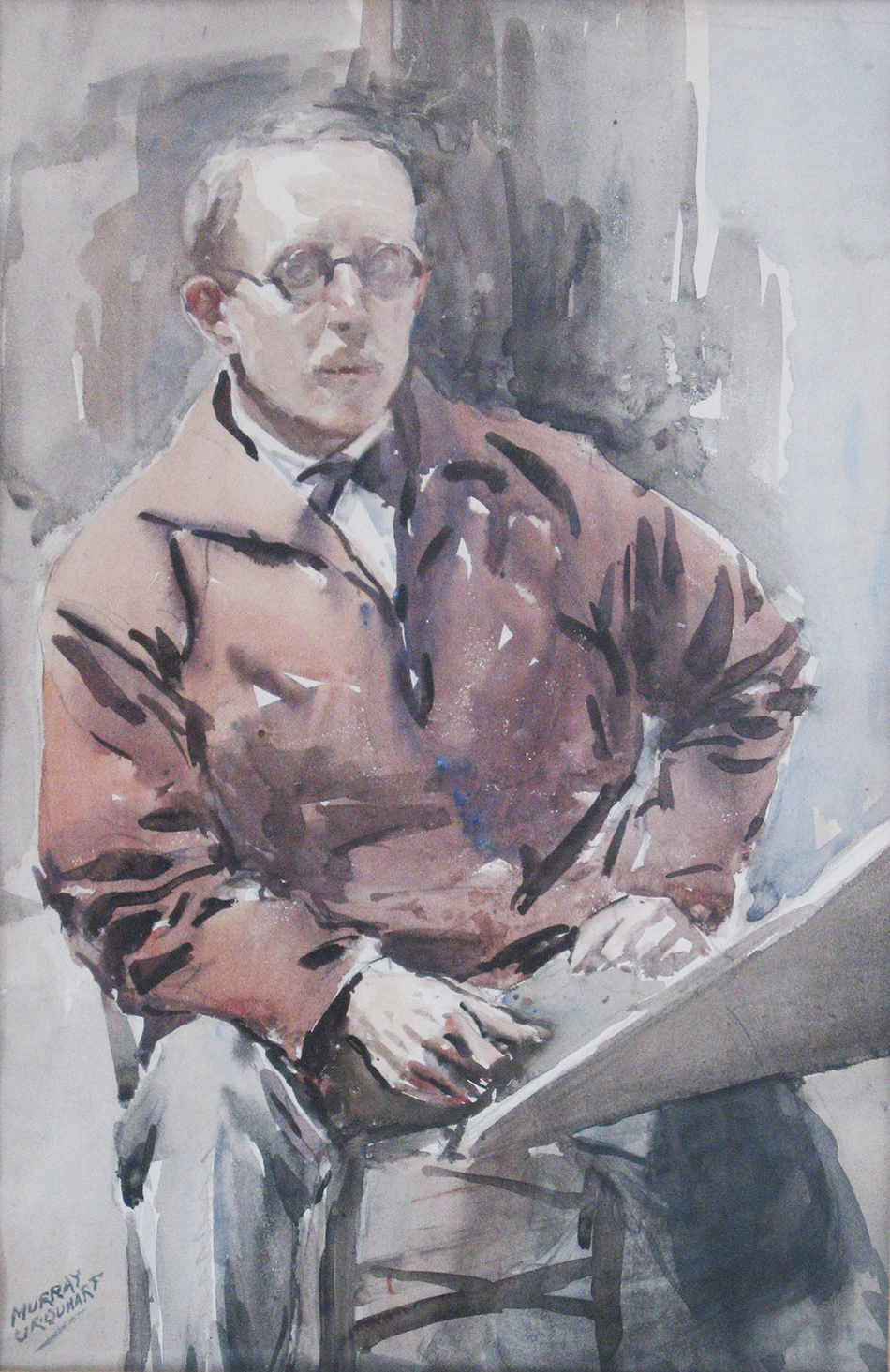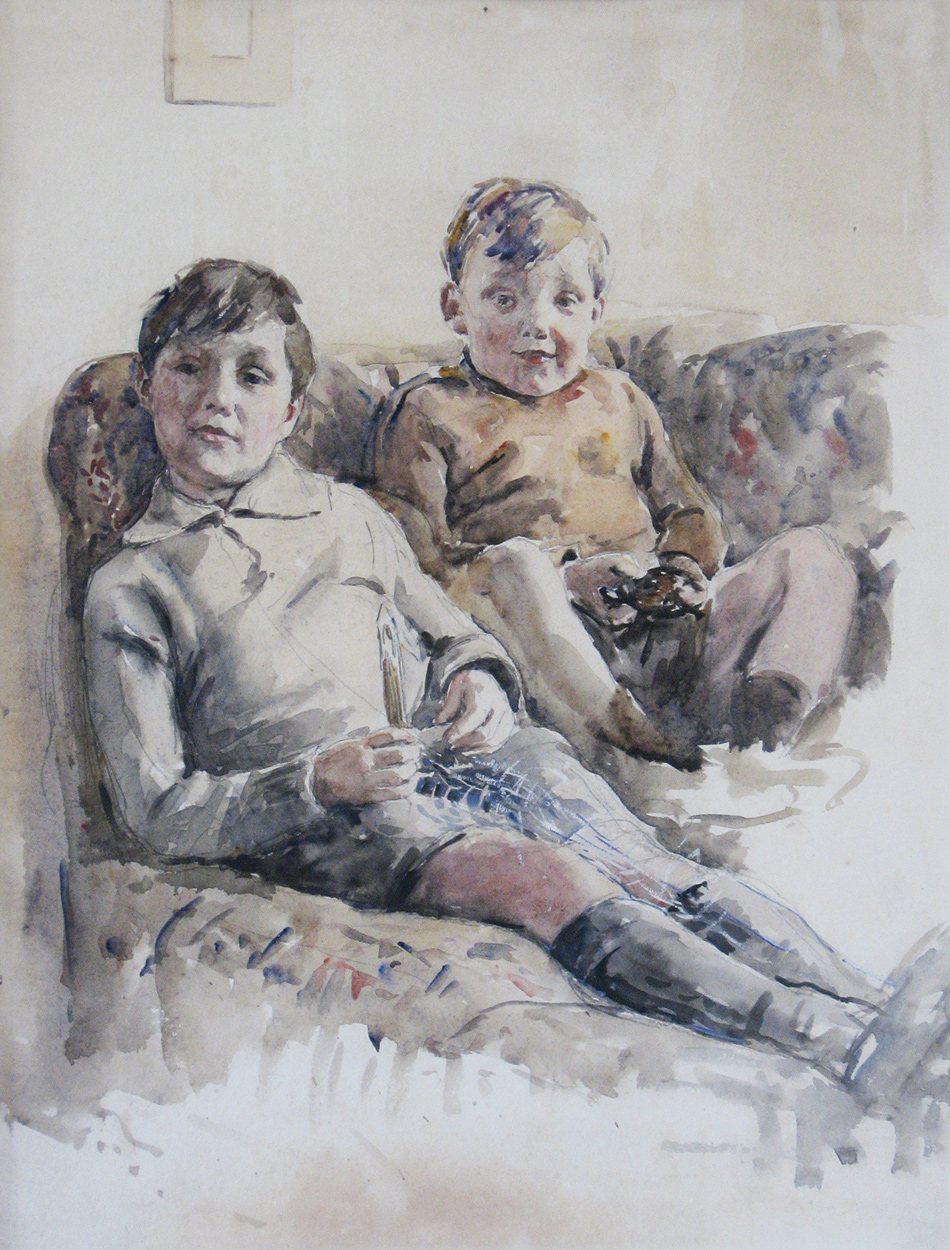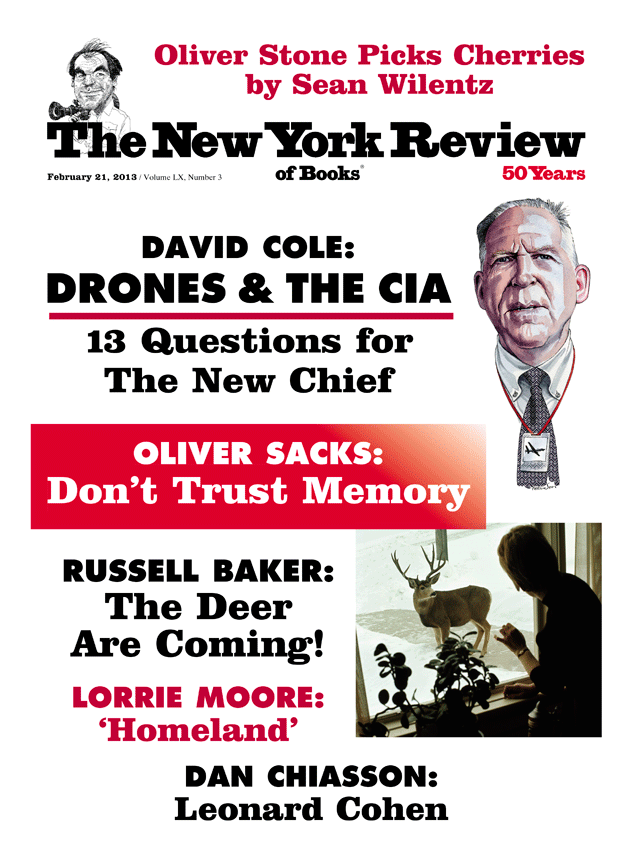My father was single-minded to a fault. Painting took absolute priority in his life, and his wife and children—not to mention national events and international disasters—were all secondary. He painted during daylight hours wherever he happened to be. What he did for money remained a mystery, except that we evidently had very little of it and lived in a primitive farm cottage without electricity or running water. For my first five years my father was a distant figure, but at least he was living with us.
In 1925, when I was six, my father, carrying his easel and paintbox, rode away on his bicycle and never came home again. For years my mother never mentioned or explained this fact. Later on, my brother Andrew and I would spend ten excruciating days each year staying with our father in gloomy rooming houses on the outskirts of London. These penitential visits were spent mostly on the top of London double-decker buses, the cheapest way of passing the time.
My father’s father was the minister in Portpatrick, a small fishing port on the western coast of Scotland. He died four months before Murray, their only child, was born; his mother died during Murray’s birth.
Murray grew up with doting spinster aunts in the beautiful city of Edinburgh, and retained its soft accent. He was charming, handsome, talented, and, inevitably, spoiled. He went to art school in Edinburgh and lived in Paris for two years. He loved the French Impressionists, and they were as far as my father would go. He was not drawn to Braque, Picasso, or Matisse.
My father married my mother in 1911 in Bridport, an old market town on the south coast of Dorset, in England. As usual, he painted from dawn to dusk every day, and my mother, who much admired his work, often accompanied him. I have on my wall in Tyringham, Massachusetts, some of the pictures he painted in the early years of their marriage. They are lively and happy.
Their first child, Andrew, was born in April 1914, four months before the declaration of war. The Great War presented a problem for my father, who would do anything to avoid military service. Was he mortally afraid of violent death? Or did he consider that painting was the only thing that he had the right and obligation to do? In any case, his obsession was such that he would hide, take a false name—anything to escape conscription.
The four years of the war must have been a nightmare for my mother. She finally mentioned the problem to me on September 4, 1939, the second day of World War II, when I had to tell her that I had joined the army. I feared she would be angry because I could also have continued at Oxford for another year, but the memory of her husband’s performance in World War I remained so intense that she was positively relieved at my becoming a soldier.
My father was convinced that he would eventually become one of the world’s preeminent painters. My mother thought this immodest, but since he didn’t do anything except paint, it seemed to me a harmless if distant daydream. There was, in fact, an abortive flicker of public interest in his paintings in the 1970s during, surprisingly, the Lebanese civil war, when a Lebanese friend told me that a dozen of his pictures, bought in London, were “the sensation of Beirut.”
My father was a fervent spiritualist and the close friend of innumerable ghosts. He told us of his conversations with people long dead as if he had just met them in the street. He tended to be rather snobbish about famous people. I remember his account of his talk with the great eighteenth-century painter Sir Joshua Reynolds. The houses my father stayed in buzzed with psychic phenomena, and on one occasion he hinted at a rendezvous with the Loch Ness Monster. His favorite Cairn terrier, Judy, jumped onto his bed and barked each morning until his dying day in the early 1970s, although she had died in 1936.
After he bicycled away from us, my father married his cousin, Muriel, who swallowed without difficulty his claims to genius. My mother never saw him again, but still loved him and admired his painting. My brother and I never forgave him for abandoning her. She continued to teach until she was over eighty, and also somehow managed to give us both an excellent education, to which my father did not contribute.
I was so prejudiced against my father that for many years I was also prejudiced against his painting, which was stupid. He was an outstanding watercolorist in the classic British tradition, which has always suited the English climate, countryside, and character. He produced hundreds of pictures, whose freshness, spontaneity, and skill remain undiminished. With two or three brushstrokes, he could summon and retain a sunny seaside or an overcast winter day in the Scottish highlands. He was also very accomplished in oils, both landscapes and portraits. He drew beautifully, instantly, and without correction. He neglected, however, to make any effort to sell his pictures.
Advertisement
As the years pass, it seems to me more and more miraculous that one person’s particular skill may defy time and decay—at least for some generations. My father had this gift and it was the most important thing in his life. We remember, less and less, all the rest of it.
This Issue
February 21, 2013
Speak, Memory
13 Questions for John O. Brennan
Double Agents in Love




